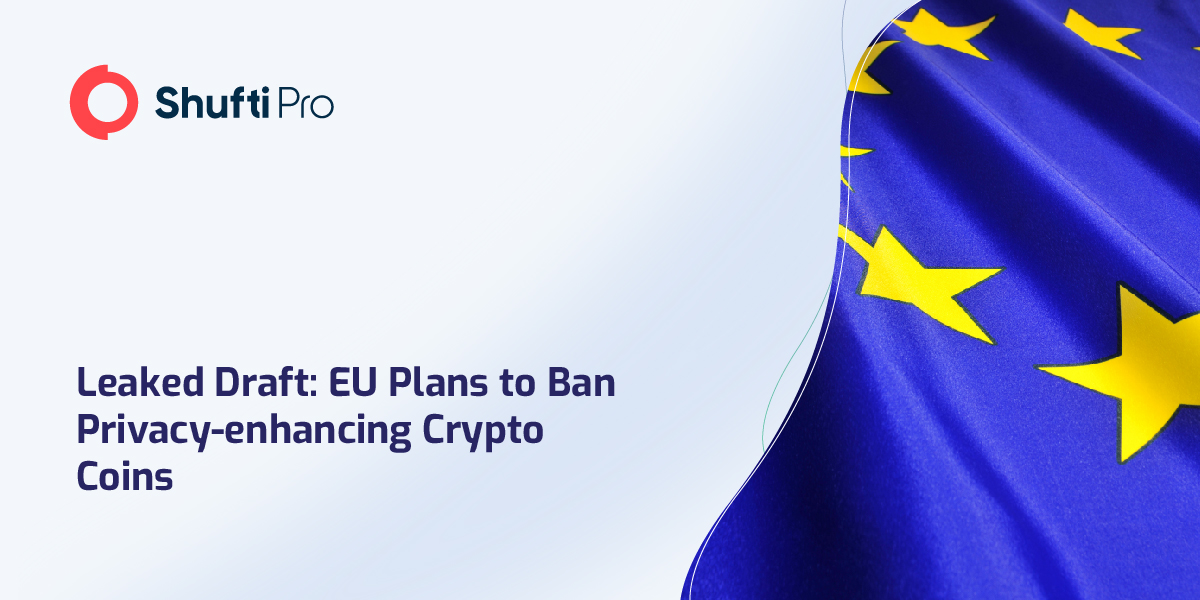Leaked Draft: EU Plans to Ban Privacy Enhancing Crypto Coins

CoinDesk has received a leaked draft of the money laundering bill, disclosing plans of the European Union (EU) to ban bank and crypto providers dealing with privacy-enhancing coins like monero, zcash, and dash.
Plans from Czech authorities would be the most recent blow to anonymous payment methods after strict new regulations were agreed upon over the summer. As per a legislative draft received by CoinDesk, “credit institutions, financial institutions, and crypto-asset service providers shall be prohibited from keeping …anonymity-enhancing coins.”
According to an EU diplomat, the policy was to reduce the risk associated with crypto assets designed to be untraceable. The prohibition on privacy coins is meant to mirror one on unnamed instruments like bearer shares as well as anonymous accounts included in an original bill proposal.
Czech plans would need crypto asset providers to verify clients’ identities for irregular payments of even less than 1,000 euros and to ask for the nature and purpose of a business in case of larger payments. Due diligence procedures would be tougher for businesses such as banks, where they apply to larger payments out of fear that crypto payments could be divided into bits very easily.
The document also stated that cryptocurrency service providers conducting business outside the European Union would need to confirm that their counterparty is licensed and that they have money laundering procedures, with specifics of the vetting to be outlined by AMLA.
The handling of dirty money through the metaverse, decentralized finance, and Non-Fungible Tokens (NFTs) are the focus of the parallel changes to the bill made by lawmakers at the European Parliament. For the bill to become law, the approval of both the Council and the European Parliament is needed.
If so, it would be the most recent example of a legislative onslaught on internet anonymity, which has valid uses but regulators are also concerned that it may be used to process illegal transactions, violate sanctions, or assist terrorists.
The U.S. Treasury cracked down hard on Tornado Cash, an Ethereum-based privacy tool, after alleging that it was used to raise funds for North Korea’s weapons development. This was the first time that sanction power had been invoked against a decentralized protocol.
Exchanges are not permitted to allow the trade of anonymous crypto assets if they cannot identify the holders, according to the EU’s own Markets in Crypto Assets Regulation (MiCA), which was accepted but is not yet in operation. Anyone handling digital currencies like dash or monero is subject to additional checks under a parallel set of regulations on money transfers.
Suggested Read: US Launches First Criminal Prosecution for Alleged Cryptocurrency Sanctions Case

 Explore Now
Explore Now













